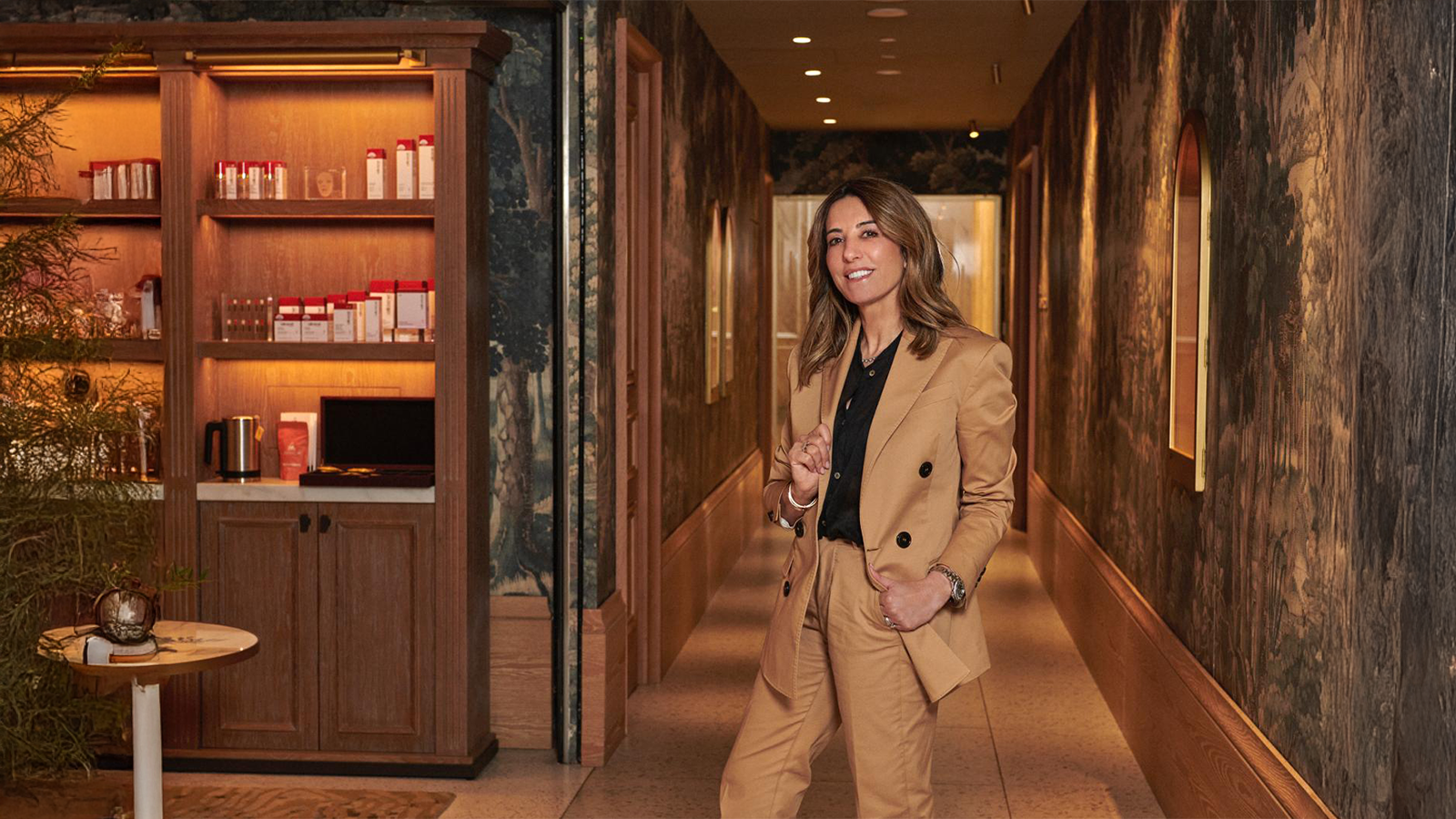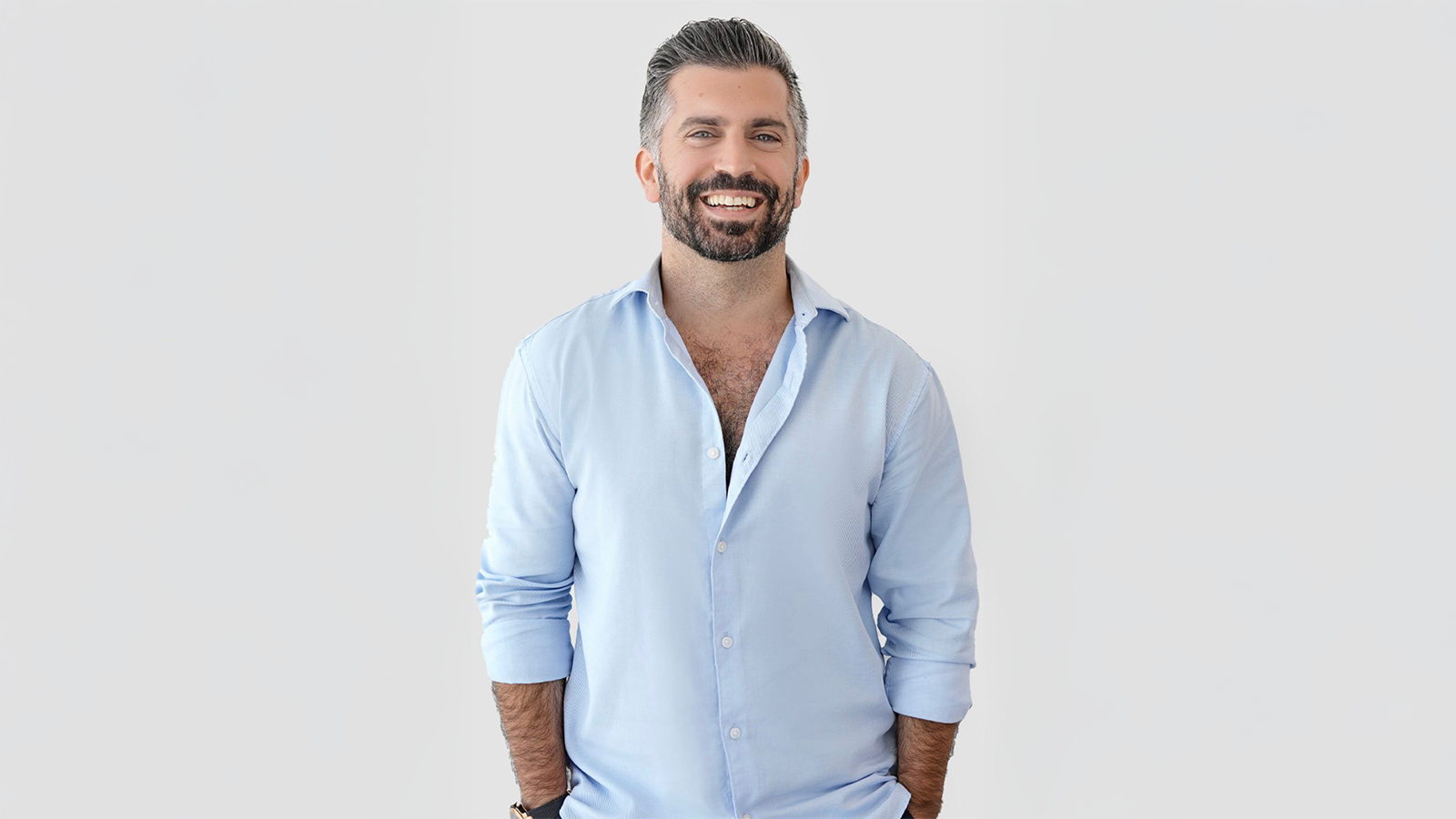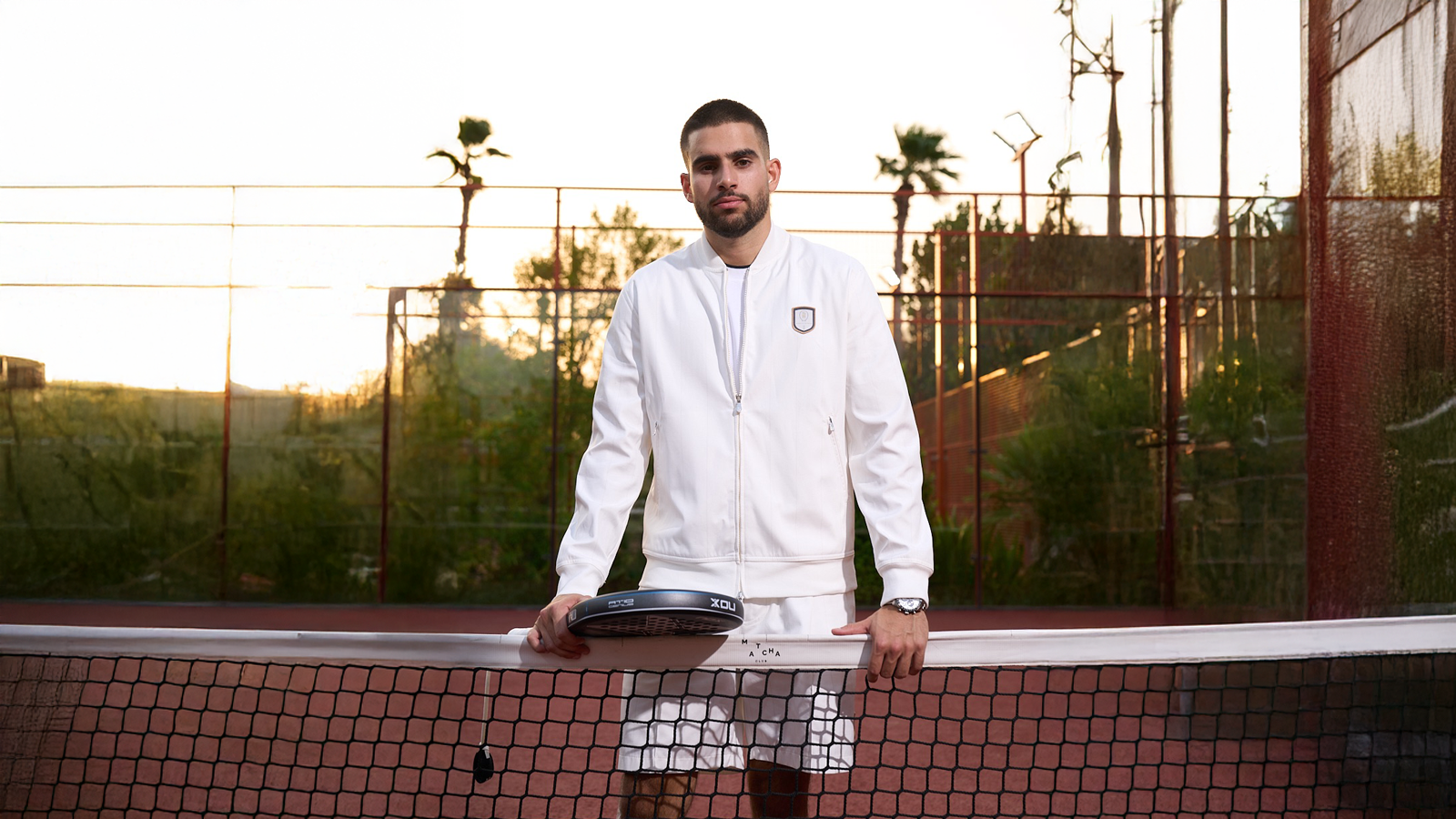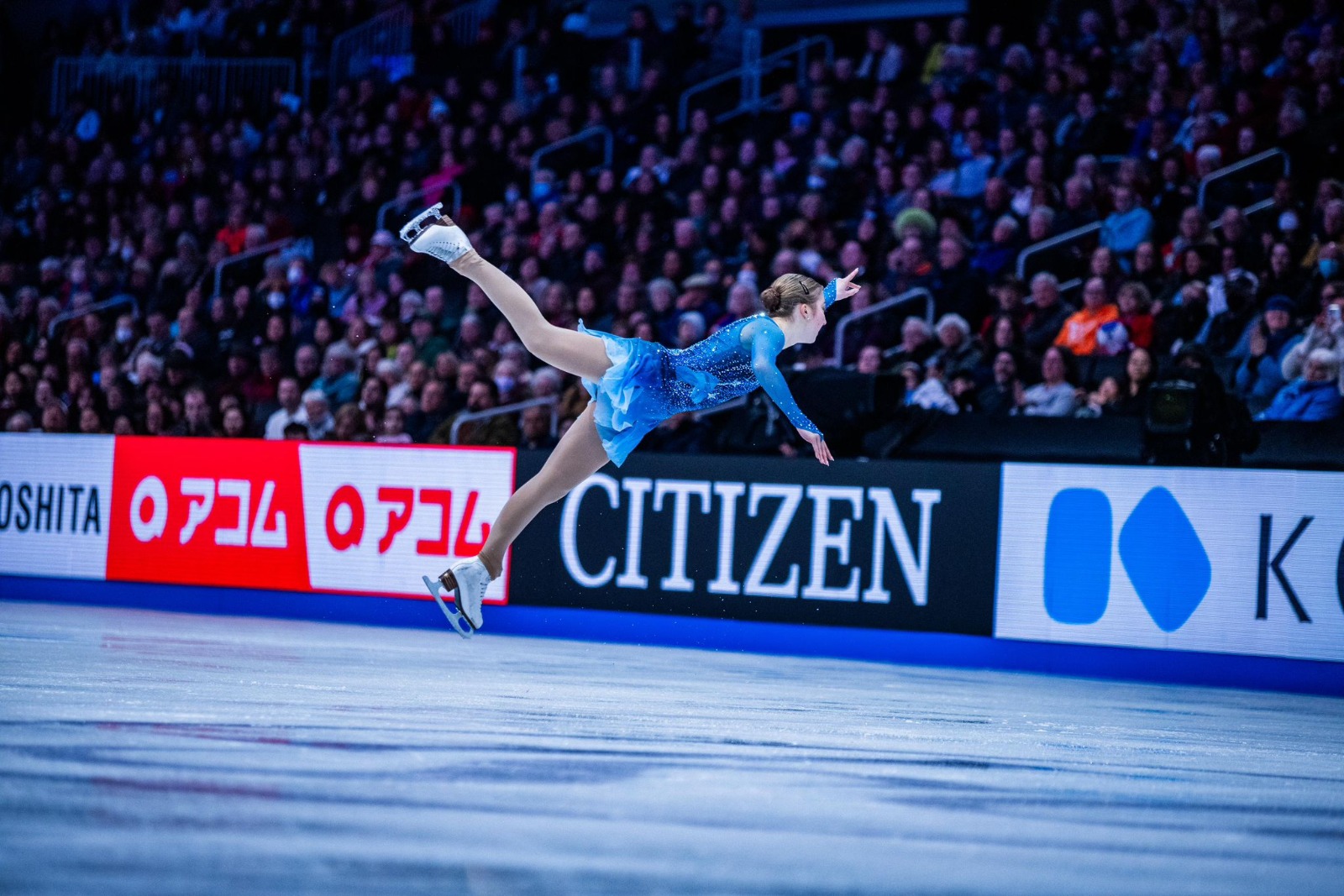
Olga Mikutina: The Psychology of an Olympic Athlete
in the fast-evolving world of high-performance sports, mental resilience is as vital as physical conditioning. In her interview with Wellness Collective, Olga Mikutina—an accomplished figure skater balancing the demands of competition and wellbeing—opens up about the psychological strategies that helped shape her journey to the Olympic stage. From stress management techniques to mental endurance training, she reveals how cutting-edge mental performance tools can empower not just elite athletes, but anyone looking to harness the power of the mind for peak performance.
1 – You’re a university student training full-time in the U.S. while pursuing Olympic dreams — how do you structure your day to balance academic rigor, intense training, and rest?
To succeed in both studies and sports, while also having time for rest and friends, I structure my day. I’m good at time management. I make a schedule for myself and make sure that every day there is time both for training and for attending classes after lunch. At the university, I usually take 5–6 courses, 1–2 of which are online. I really enjoy being busy and having full, productive days — it gives me energy. I always have one day off per week, and that’s enough for me to rest.
2 – Reflecting on your journey from Ukraine to Austria and now the U.S., how has adapting to new cultures and training environments shaped your mental toughness and competitive grit?
Thanks to my moves and experiences of living in different countries, I know that you can adapt to anything. What matters most is your mindset and what you think. Positive thinking, determination, and desire are essential. My travels have taught me to be stronger, more communicative, and braver. They taught me to take risks and not to fear change. I also learned that when you arrive in a new culture, you should immediately start learning the language, show respect to local people and traditions, be open, and smile.
3 – Endurance on the ice comes through powerful repetition — what mindset shifts helped you go from local champion to top contender at World Championships and the Olympics?
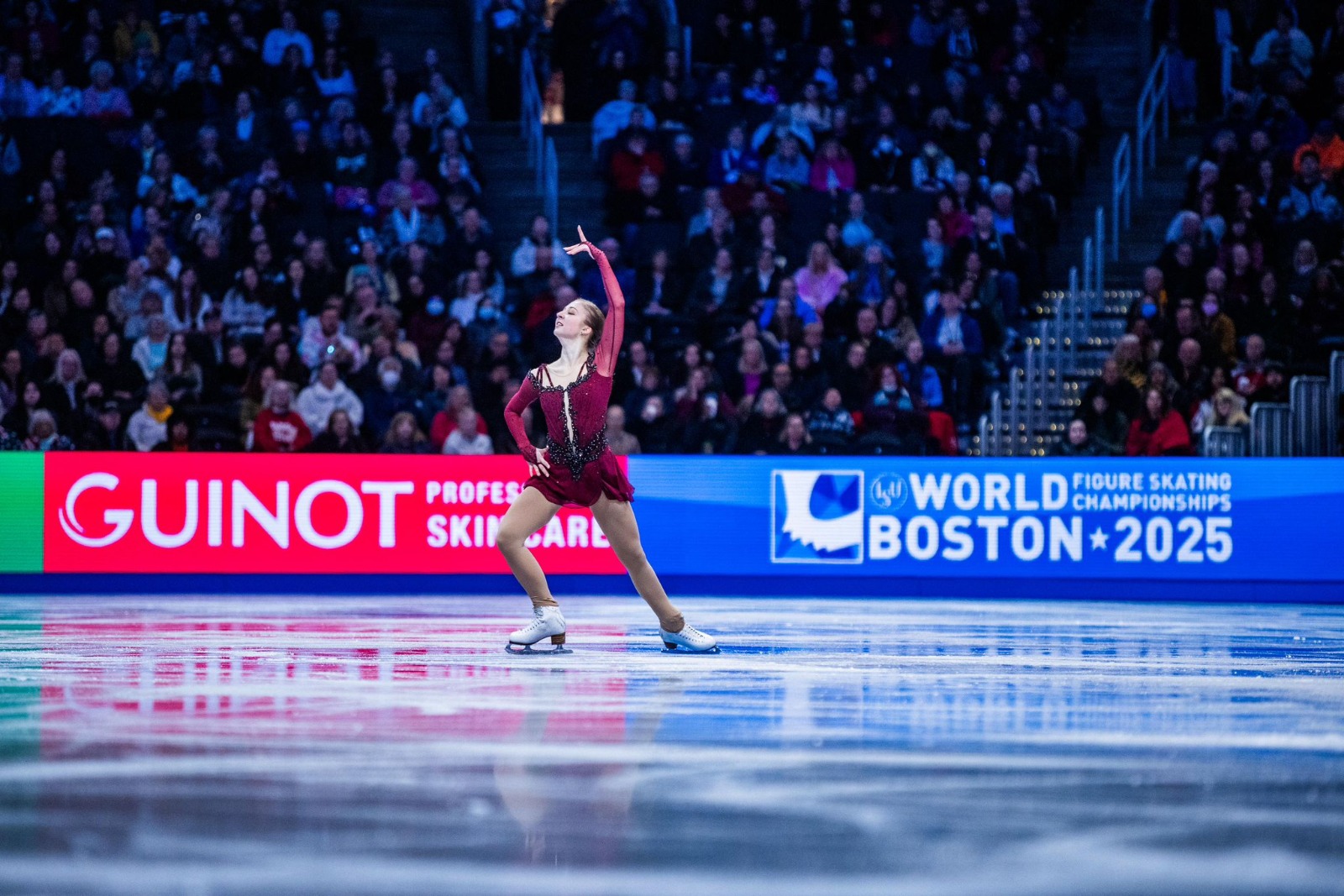
I never had a sudden “mindset shift.” Since childhood, I was passionate about skating — it always brought me joy and fun. The same happens now: every time I skate, learn new tricks, or master old ones, I feel progress, and that gives me motivation to keep going. Since childhood, I also loved the feeling of victory and winning. By simply staying on my path and training every day, I came to where I am today. I set goals for myself and achieve them step by step. My mom always reminds me to believe in myself, to praise myself, and to take care of myself as if I were caring for a small child.
4 – You’ve steadily improved your European and World rankings over the years. How do you break down long-term goals into manageable milestones to avoid feeling overwhelmed?
I try to set realistic goals and focus on improving my personal results first, even if only a little bit. I also remember that failure is not a bad thing — it’s a lesson. I learn from mistakes and experiences and move forward.
5 – Training in diverse locations—Feldkirch, Flims, Montclair—you’ve experienced different tempos and altitudes. How do you tailor your physical and mental routines to maintain endurance across these shifts?
Changing time zones and training environments forces me to adapt and give credit to my body. After long flights, I usually take 1–2 days off and then one day of lighter physical activity. It’s important to remember that the body is not a robot and needs care.
6 – Skaters often face injuries, setbacks, or mind blocks. Can you share a time when your psychological resilience helped you push through a slump or disappointment?
There were times when I was injured for long periods. For no clear reason, my knee hurt, and nothing seemed to help. It’s very difficult when you can’t do what you love. Again, this is when mindset is key. I had to believe that everything happens for the best and use that time for something else — to mentally recharge or even to try new hobbies. When I feel tired or down, playing the piano or spending time with friends helps me.
7 – Figure skating is as much mental as physical. Do you use visualization, self-talk, or pre-performance rituals to calm nerves and sharpen focus before stepping onto the ice?
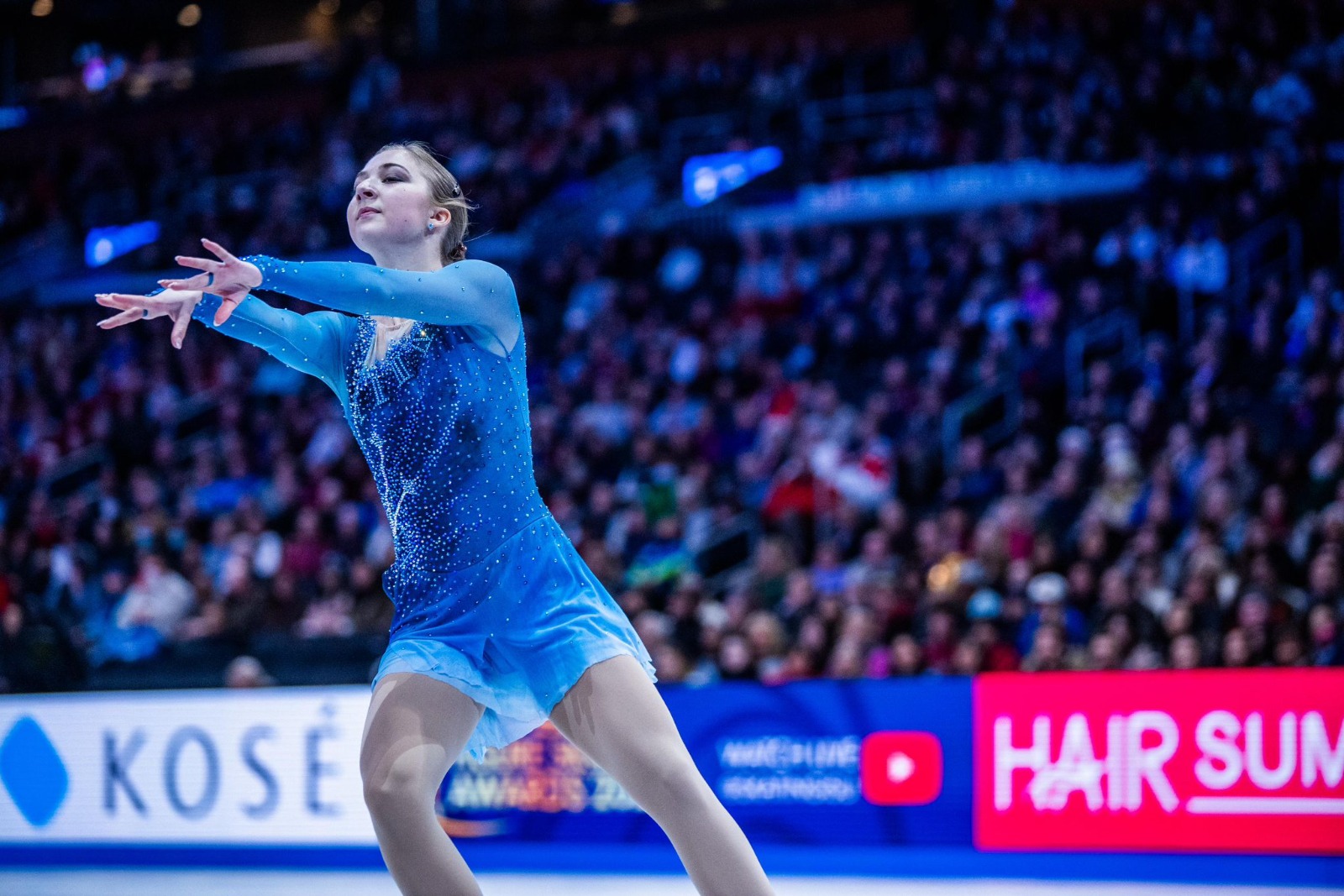
I always use visualization — in life in general too. I believe that thoughts become reality. I have a vision board with my dreams and goals that I believe in. At competitions, three rules help me cope with nerves:
8 – Maintaining peak performance requires recovery strategies—what’s your approach to recovery? (e.g., sleep habits, nutrition protocols, stretch routines, mental downtime.)
Preparation (good training and lots of practice before the performance)
- A smile before going out
- Remembering that everyone has their own life. What you do only matters to you — you’re doing it for yourself. So relax and enjoy the process.
For physical recovery, I like swimming 1–2 times a week, massaging my body with a blackroll for 15 minutes after each training, stretching for 40 minutes every other day, and sometimes doing light jogging for 15 minutes. Regarding sleep, I usually go to bed around 10:30–11:00 p.m. and wake up at 7 a.m. for my first training at 8:40. I eat everything, listening to my body. I avoid fast food, chips, and soda, and I don’t like heavy or greasy food. Every day I eat meat or fish with salad and a side dish, sometimes soup with meat. I love sweets, so I allow myself a small dessert every day — chocolate, a piece of cake, or cookies after my main meal.
9 – Performing to music like “La terre vue du ciel” and emotional rhythm pieces, how does your psychological connection to music help you endure grueling competitions and maintain emotional alignment?
Music helps me stay focused and keeps my movements in rhythm, making sure I don’t slow down and can repeat what I’ve trained.
10 – Looking ahead to Milan 2026, how do you stay grounded and motivated across seasons, especially with pressure rising and life evolving off the ice?
For me, the upcoming season and the Olympics are a huge source of inspiration and motivation to work and train. To stay calm inside and not give in to pressure, I remind myself of what I’ve already achieved and that I should be proud of it.

